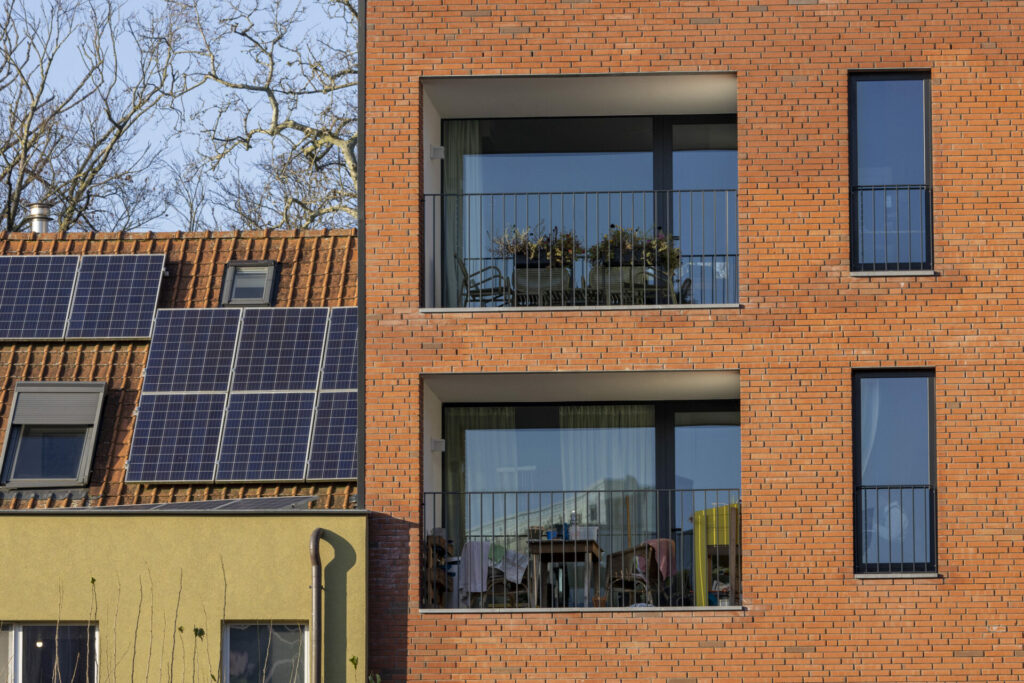At the end of 2023, prices of both new-build houses and flats stabilised, putting what experts believe to be a temporary end to years of price increases. However, it may still be too soon to speak of a trend reversal.
At the start of the pandemic, lockdowns prompted a surge in demand for both new and existing homes. This far exceeded supply, and substantially pushed prices up. While the property market for secondary homes has been cooling down for some time, the opposite was true for new-builds.
The post-pandemic economic recovery led to inflation levels that pushed construction costs higher. Then, the energy crisis in early 2022 pushed up the price of energy-efficient new-builds because of high demand.
Between 2017 and 2023, this resulted in the cost of new-build flats rising by 33.8%. The cost of new houses increased by 39.7%. For similar existing properties, the price increase is more limited: 19.8% for flats and 22.6% for houses.
However, prices stabilised in the fourth quarter of last year, according to the New Construction Barometer by neighbourhood developer Matexi and real estate data platform Realo. Flat prices rose by just 0.97% compared to the previous quarter while house prices rose 0.04%. To put this into perspective: between the end of 2022 and 2023, new-build flat prices rose by 5.07% and new-build house prices by 3.11% across Belgium.
"The results indicate a preliminary stabilisation of new construction prices, as we saw earlier in the secondary market," said Fabrice Luyckx, data specialist at Realo.
No surprise?
The stabilisation of new construction prices should not be seen as a surprise, but is instead due to two clear factors.
Among other things, it can be explained by the interest rate hikes implemented by the European Central Bank (ECB) and other central banks to curb inflation. This "inevitably" curbed the number of real estate transactions, Roel Helgers, Market Economist at Matexi explained.
Secondly, as the ECB's interest rate policy started to see inflation soften, construction costs rose less sharply. "With construction costs stabilising and affordability declining due to increased interest rates, new construction property prices are now also capping."
In Flanders, this even resulted in property price drops: a semi-detached new-build house of 160 square metres (m2) with three bedrooms, a bathroom and a garden here costs €408,655, a price drop of 0.18% compared to the previous quarter. However, this is still 3.71% more expensive than this time last year. The cost of a newly built flat of 95 m2 in Flanders is €317,488, up 1.16% in one quarter, and 4.9% in one year.
The most expensive region for new-builds, as for secondary homes, is Brussels. Here, a new-build flat €381,685, a 2.09% increase since last quarter and up by 8% since last year. New flats in Wallonia are cheapest at €265,409 (+0.29% since Q3 and +4.28% since Q4 in 2023).
Related News
- Brussels renters given precedence to buy home if it goes on sale
- Price of detached houses in Brussels falls by €225,000
However, the continued stabilisation of prices is not a given. New construction is by definition energy efficient, and since the energy crisis, buyers have been placing increasing importance on energy efficiency, which has also become evident in the market of existing properties. Energy-guzzling houses have been offered for sale more cheaply, while the asking prices of the most energy-efficient ones are still rising.
"The price increases we see today in energy-efficient existing homes may indicate a market correction, where energy efficiency has become a determining factor for house prices," Luyckx concluded.

